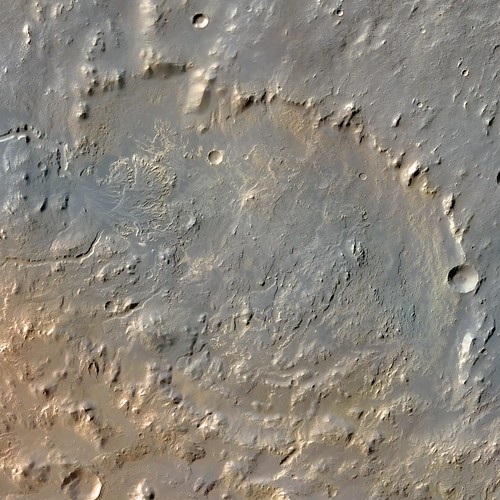to slinted, cartrite and others for the valuable contributions !) I found that many of the cleaned up CTX images with the increased dynmiac range are
very well suited candidates for artificial colorization. Here are the first results:
A martian polar dust storm over ice dunes

and a crater landscape with central mountains:

Please keep in mind that, as always with artificial colorization, the colors, although I usually do base the palettes on "real" color images of similar areas with similar surface composition, are, of course not intended to reflect the "true colors" but rather be understood as a kind of "artitst impression"










